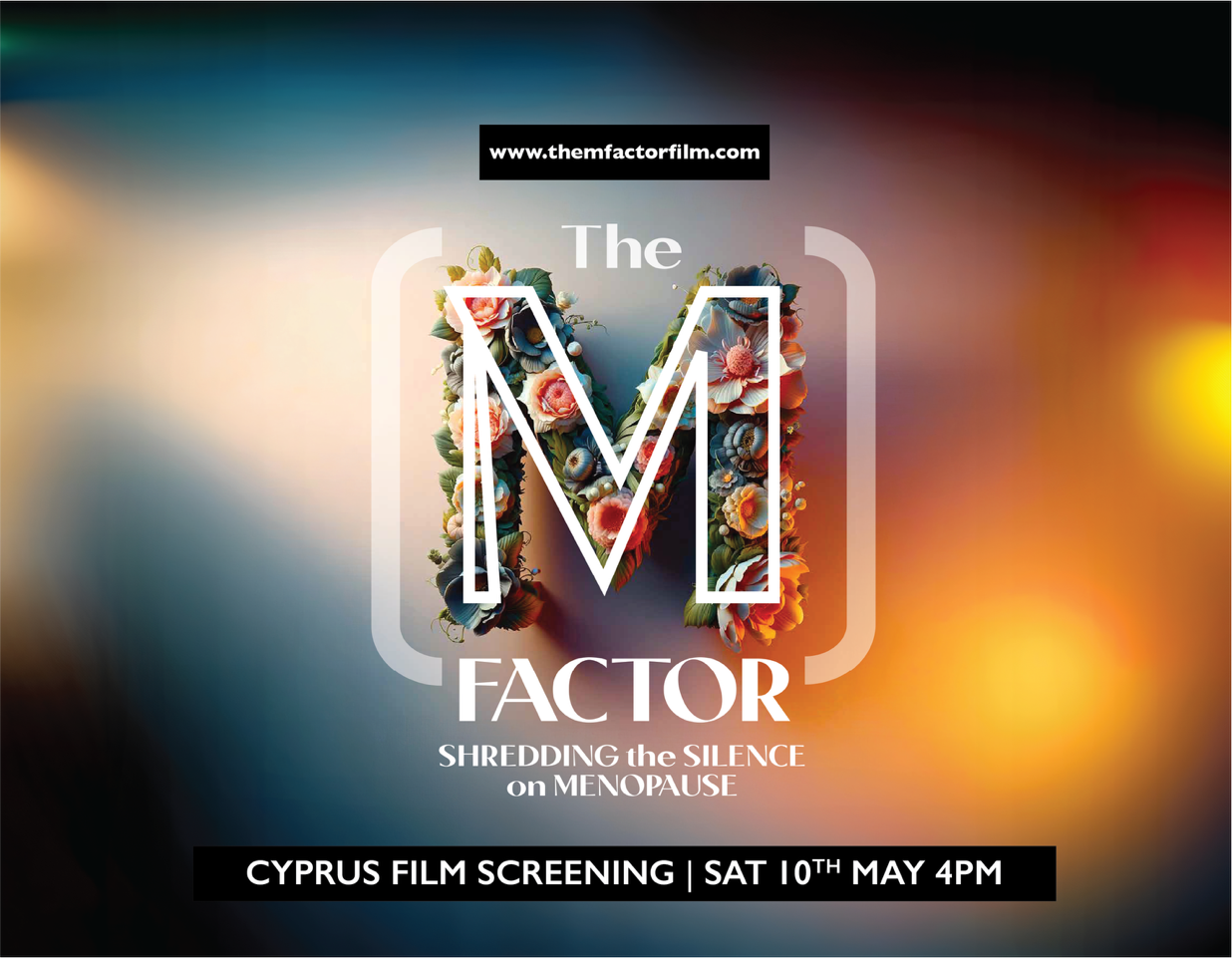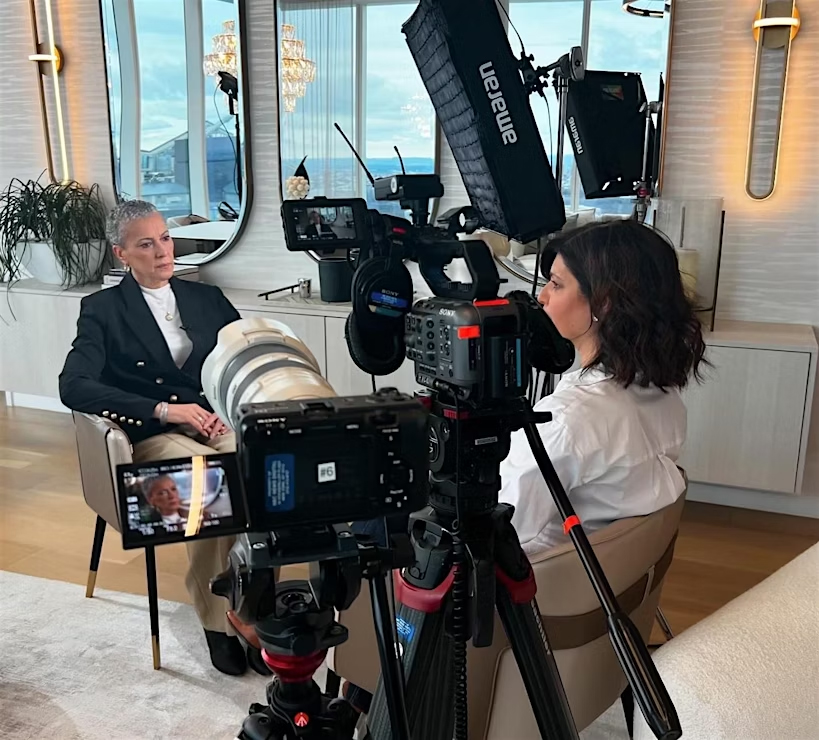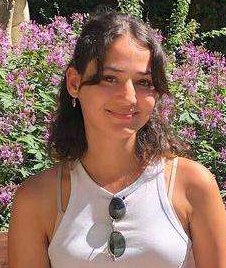A screening of a documentary on menopause aims to raise awareness of symptoms and why women of a certain age are not the only ones impacted by it
Although worldwide an estimated 985 million women struggle with menopause, it continues to be surrounded by silence, shame and misinformation, worsening the broader crisis in women’s health and leading to up to half of the population of a certain age bracket feeling as if medical science has let them down.
“No one talks about menopause as it’s considered a taboo, people prefer to just ignore us rather than deal with the problem,” says founder of Menopause Support Cyprus Thalia Iacovou. She was moved to found the group when she couldn’t find any information on the matter which left her feeling confused. The aim of MSC is to educate, raise awareness and create a community for women who struggle with menopause.
“I felt alone and troubled,” she adds. “That was until I created the website for women to feel included in a community.”
Additionally, she brought MSC together with women’s organisation AIPFE to create webinars on to which gynaecologists have been invited to talk about menopause.
Her frustration with the lack of information and resources available for women was echoed by fellow AIPFE member Mahi Solomou, who said “my orthopaedic surgeon suggested carpal surgery in both wrists as I would get uncomfortable tingling in my fingers, thankfully that wasn’t the case and I didn’t proceed to have the operation. It was menopause.”
During her own research into menopause, Mahi came across the documentary The (M) Factor, a great educational piece she was keen to share with those both unaware of menopause and those struggling with it. Which led her to approaching the film’s producers to propose a public screening in Cyprus.
The film is the first dedicated to menopause that has earned Continuing Medical Education (CME) accreditation for healthcare workers in the USA. Any doctor watching it gets as educated as they would by attending a seminar.

Thalia says this is of importance because doctors around the world, not just those in Cyprus, are not trained to detect menopause symptoms. Not a lot of attention, she adds, is given to women’s health after they pass the age of being able to birth.
The documentary sheds light on the often-overlooked physical, emotional and professional impacts of menopause, with the aim of bridging the knowledge gap and fostering greater understanding in both medical and social spaces.
Research highlighted by the film shows that changes in hormone levels during menopause can have a direct impact on a woman’s brain, heart and bone health. “Knowing these facts can help women advocate for themselves and get the support they need and deserve for their midlife wellness,” says Thalia.
The producers’ positive response to Mahi’s behest set in motion the screening to take place on May 10 at the Discovery Hall, University of Nicosia as part of its international tour.
Award-winning journalist and executive producer of The (M) Factor Tamsen Fadal will be joining the event live from New York after the screening and will answer questions about both the film and menopause struggles.
The screening, says Thalia, is fundamental as it shows the direct impact of menopause not only on women but to all those that surround them too. “It doesn’t just impact women, but their families, the workplace and the economy overall,” she adds.
Mahi says women who have seen the film break their silence and begin to search for workplace management policies and visit doctors more regularly to seek answers.
Brushed under the carpet as it is, menopause can hugely impact the workforce with severe implications on productivity, wellbeing and retention. Research shows that 25 per cent of women globally consider quitting their jobs due to menopause symptoms while many do not seek promotion.
The documentary informs women of their rights, what symptoms to expect and what can help them in their day-to-day lives. By raising awareness on the matter everyone becomes knowledgeable on how the problem should be handled, says Mahi.
Although workplaces giving consideration to menopause sounds quite remarkable, she says that in one place in Cyprus at least that is what has happened. The British High Commission, she says, adopted a menopause protocol to raise awareness, ensure reasonable adjustments and provide a menopause support group where people share stories, struggles, victories and practices, while she continues training through offering webinars.
“I wasn’t expecting that much of an interest from men and I was surprised to see that a lot of them came for more information on the matter, as they all had women in their lives experiencing menopause,” she says.
As a result of her actions, some adjustments have been made at her workplace such as management and staff training, the provision of menstrual products in bathrooms and offering the option of working from home.
As menopause effects families, the workplace and the economy overall, Thalia says “breaking the taboo of menopause and shedding light on its impact has a direct benefit on everyone”.






Click here to change your cookie preferences